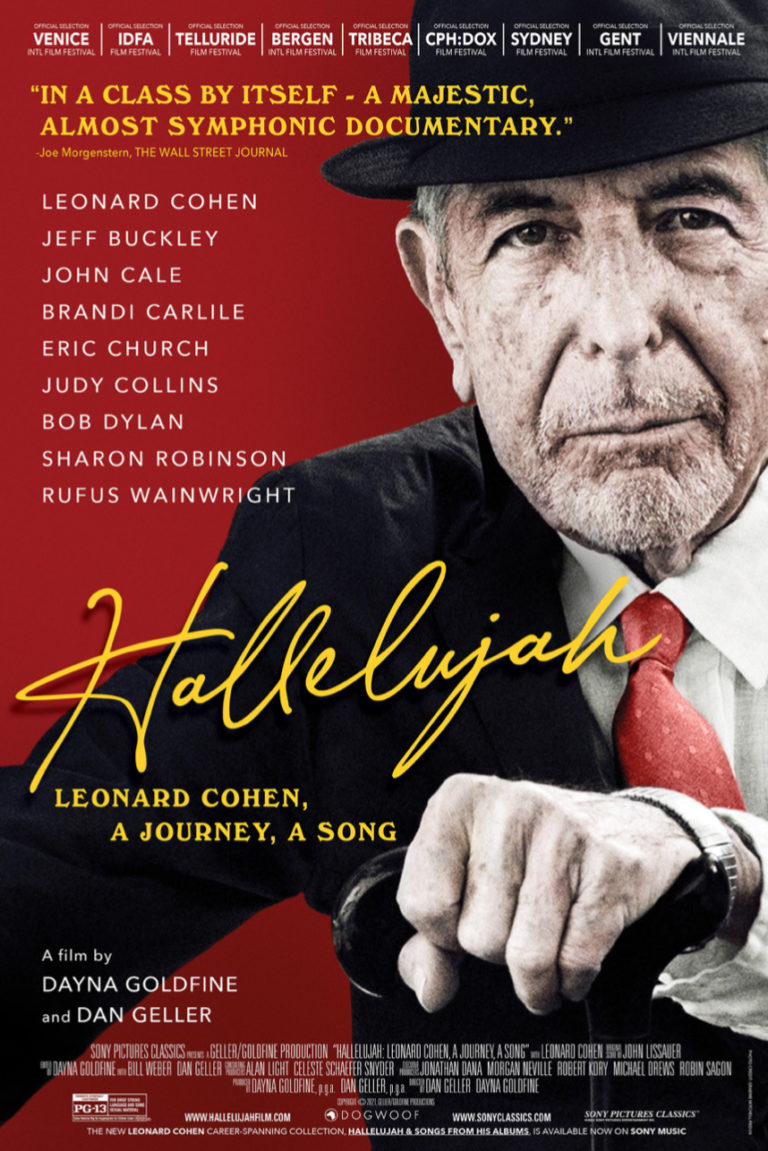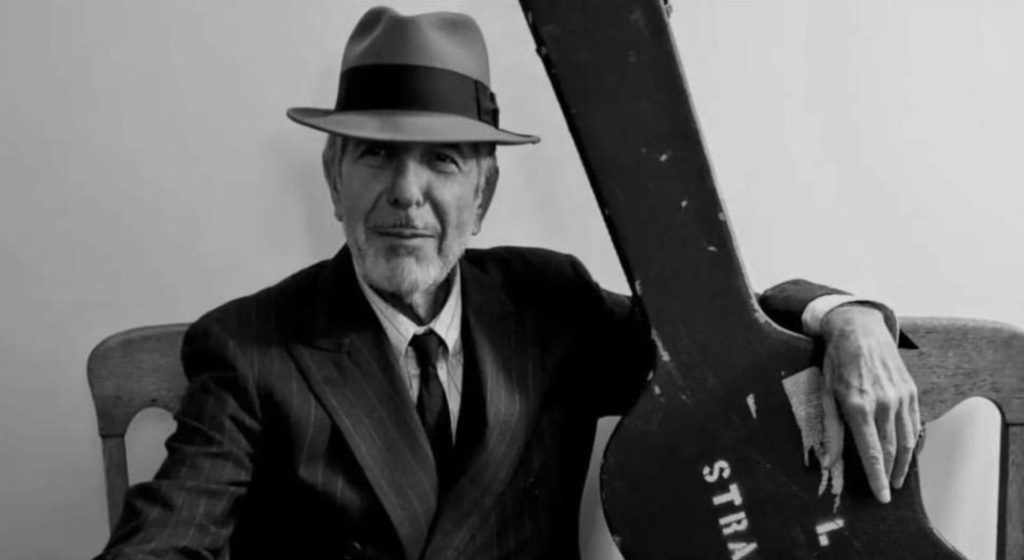
While a definitive list doesn’t exist you’d be hard-pressed to find a ranking of the most covered songs of all time that does not include Leonard Cohen’s, Hallelujah. It’s become an instant classic to many music fans. Many who would call it their favorite song, even if they’ve never heard the original Cohen recording. Now, directors Dan Geller and Dayna Goldfine have brought their new documentary chronicling the history of this surprisingly troubled song to this year’s Tribeca Festival. And while the film feels like it misses an opportunity to be a definitive Leonard Cohen documentary, it is one of very few documentaries that gets all of its information correct.
It wasn’t until the age of 30 that the then poet Leonard Cohen made it known his desires to be a musician. While it may be hard to believe now, the start of his music career did not lift off immediately into the stratosphere. With his music being well received around the world (especially in Europe), his status in the U.S. market was held to pockets of adoring fans. As his fame grew over the years, his record company (Sony’s Columbia Records) still felt that he needed a big push in the biggest market in the world.
When that attempt failed (the Phil Spector produced Death of Ladies’ Man), it was back to business as normal for Cohen. Seven years later, in 1984, another attempt to break that seal was made again, this time under more control from Cohen and his then producer John Lissauer. The result was the album Various Positions, which contained what Cohen and Lissauer thought was an instant radio hit; Hallelujah. The head of Columbia records disagreed, and tried to bury Various Positions, not even releasing the album in the U.S. Though Cohen would continue to perform Hallelujah live from that point forward, it wasn’t until a string of cover versions reached listeners ears till it become the legendary track the world knows now.
All documentaries should be infallible in many ways. They are supposed to be based on facts, which means there should be no room for mistakes. But as years have passed, too many films depicting true events get bogged down by issues of false narratives and biased film making. Though one can say any documentary posed in a shining light is somehow biased in the eyes of the film maker, Hallelujah: Leonard Cohen, a Journey, a Song is one of a few films I can say gets the facts right! The stories and memories of those closest to Cohen and the recorded words of the man himself could not have been used in a better way.

For more than 20 years I have been recanting the stories to friends and acquaintances that yes, while it was Jeff Buckley’s rendition of the song that started the waterfall of prominence for Hallelujah– Buckley’s version of the song was based on the John Cale interpretation that was done years earlier. Hallelujah: Leonard Cohen, a Journey, a Song does a wonderful job and tracking the song from its inception, to creation, to tent pole covers, to its irritatingly grotesque life as a talent show staple. Nothing in missed in the history of this singular song. That is, nothing but its further use in the Hollywood landscape.
Hallelujah is an amazing song and its presence in the world is undeniable. But Leonard Cohen has written better songs, and a handful of them also feature heavily in some big name pictures. From Robert Altman using many tracks from his first album in McCabe & Mrs. Miller, to Everybody Knows being a staple of Pump up the Volume, and of course Anthem, Waiting for a Miracle, an most notable The Future playing a big part of the Natural Born Killers soundtrack. The film seemed to leap by the use of Cohen’s work in the film world which could have/should have led to the use of Hallelujah in THAT scene of Zak Snyder’s The Watchmen; which is the first place a whole generation probably first heard Cohen’s original recording.
What feels off about the film is that it needs to cover some ground about Cohen’s life to bring the song itself into the fold. There eventually will be a long form documentary about Leonard Cohen, and this should have been it. Hallelujah is a world wide phenomenon, but more about Leonard’s life needs to have a light shone on it. Songs like Famous Blue Raincoat (and the audiophile’s dream that is Jennifer Warnes’ cover album by the same name) need to be just as, if not more important than Hallelujah. We need branches of his influence researched more than just a single song. While this is a wonderful dive into a singular work–the rest of the man needs the same treatment.
Final Grade: B+
Here’s the trailer of the film.

